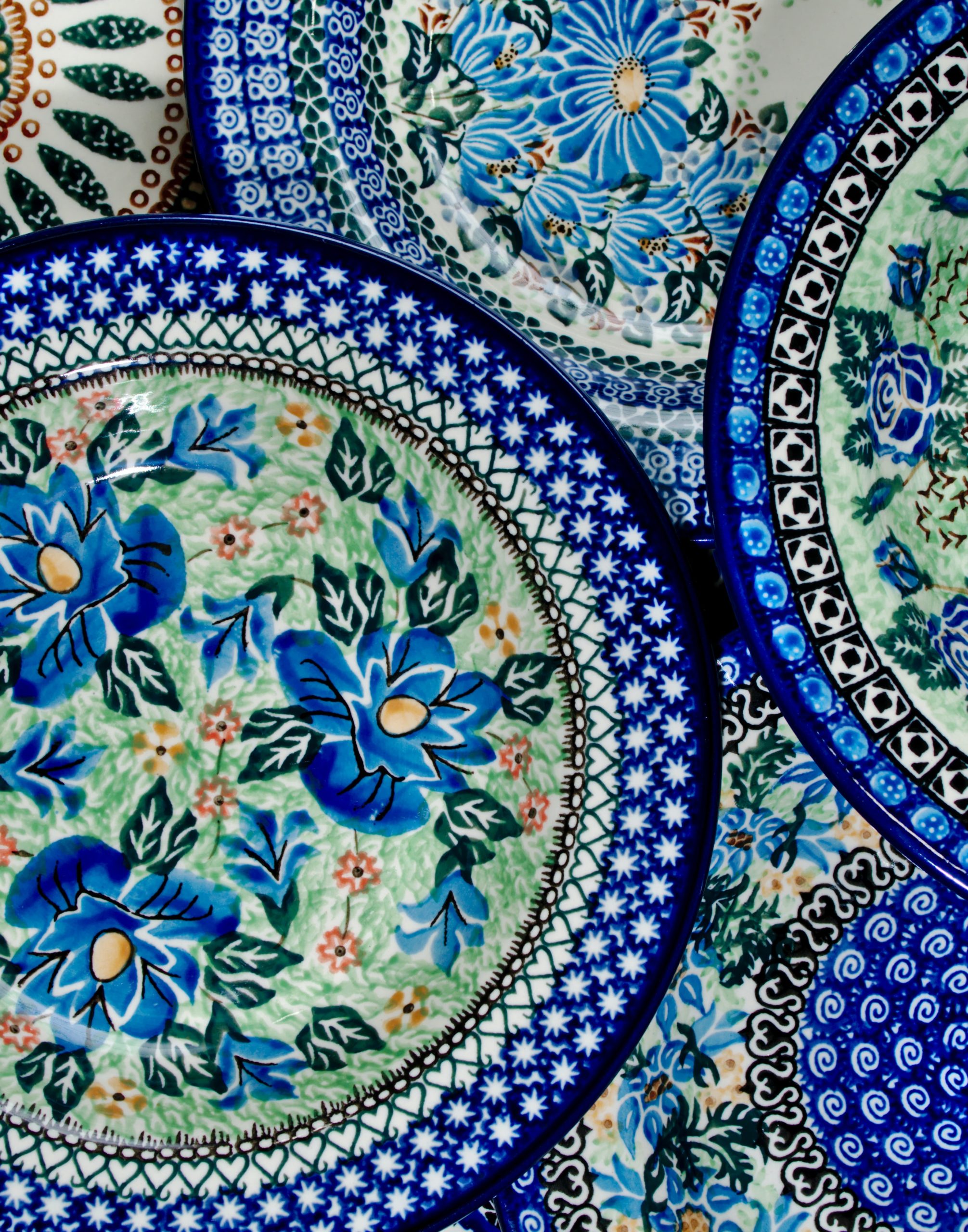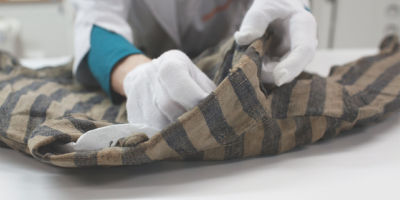
Poem: My Grandmother’s Dishes
My Grandmother’s Dishes
are shaped like kidneys.
I don’t know why
they have been boxed up
in my musty basement
for the past seven years
useless and forgotten
like my grandmother at the end
tucked away in the dreaded
nursing home. God’s waiting
room, she called it, patting
my hand as if I were the one
in need of comfort.
“It takes a long time
to die, Mameleh,” she said,
and she was right
it took her more than 99
years. But she is not gone
exactly. I inherited
her flat feet, her widow’s
peak, her heart-shaped
locket complete
with a photo of my dashing
grandpa whom I never met
but was named for
and her kidney-shaped dish
set the color of Coney
Island’s cold wet sand.
I dreamed of them last night
smooth and heavy in my hand
like they are this morning
when I set the table with them,
and suddenly I am sitting
in the one-tuchus kitchen
of my grandmother’s fifth floor
walk-up. I can feel the yellow
vinyl seat of the chair
that always stuck to the back
of my thighs, I can hear
the honk and screech
of the Brooklyn traffic down
below, I can see my grandmother
in her rolled-down stockings
wearing her flowered apron
over her flowered housecoat,
her back to me as she stirs
something on the stove
that smells like the world
to come. But as she always
said, “Enough is enough.”
It’s time to give these dishes
to someone who could use them,
it’s what she would want,
right? Wrong, says my dead mother
whose voice is never far
from my ear. If you don’t
have to feed them and they aren’t
hurting anybody, leave them
alone. Which is what she did
and which is why I have
the dishes that sat in her basement
for twenty-five years
now sitting in mine
which makes me wonder
where they will sit
after this daughterless
daughter is gone
Poetry Editor Alicia Ostriker comments:
“My Grandma’s Dishes” is humorous and elegiac at the same time. Her affectionate tenderness for her grandmother and mother rises like cream to the surface of this poem,
partly by quoting them, partly by gesture. Grandmother “patting my hand” is irresistible, and so is the “one-tuchus” kitchen, and the smell of her cooking “like the world to come,” which gently reminds us that the grandmother is now herself in that world.
But what charms me most is the description of the dishes themselves, not only “shaped like kidneys” but also “the color of Coney Island’s cold wet sand.” It takes a truly gifted poet to come up with that image.




